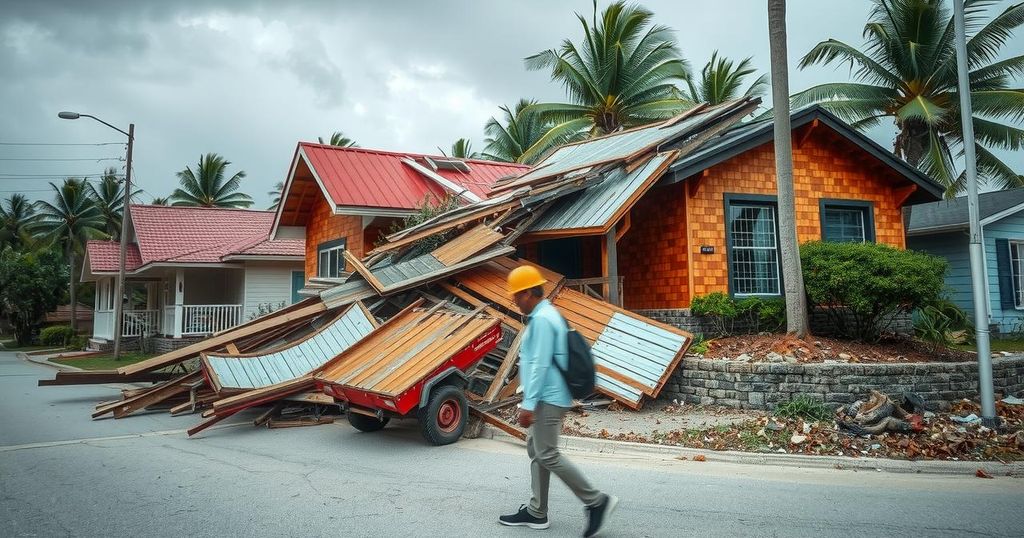Cyclone Chido: Mayotte Faces Catastrophic Aftermath with Hundreds Feared Dead
Cyclone Chido has devastated Mayotte, causing widespread destruction and leading to fears of several hundred fatalities. With infrastructure severely disrupted, emergency services are struggling to provide essential aid. Reports indicate significant food and water shortages, along with deteriorating conditions in the healthcare system. The cyclone exemplifies the ongoing vulnerabilities faced by Mayotte’s population, particularly among undocumented migrants and impoverished communities.
Mayotte is reeling from the devastating impact of Cyclone Chido, which has wreaked havoc on the French Indian Ocean territory, leading to fears that several hundred individuals may have lost their lives. Residents describe “apocalyptic scenes” as wind speeds exceeded 225 km/h, leveling impoverished neighborhoods predominantly made up of makeshift sheet-metal housing. Rescue efforts, hampered by extensive damage to transportation infrastructure, have confirmed at least twenty fatalities with higher estimates suggesting thousands may be dead or missing due to the cyclone.
Crisis responders, including reinforcements from France, are tirelessly searching for survivors amidst the debris. However, local authorities are struggling to determine the exact number of deceased, especially considering the large population of undocumented migrants in Mayotte. Approximately 85% of the territory lacks power, and water remains scarce, with reports indicating that tap water is contaminated and not suitable for consumption. Amidst these dire conditions, officials work to restore basic services and deliver necessary supplies to affected residents.
In addition to immediate human concerns, the cyclone’s devastation has significantly undermined the already fragile healthcare system. Authorities are facing immense challenges in providing food, water, and medical aid to the population of 320,000, most of whom rely heavily on French financial support. The situation worsens as the cyclone damage has disrupted infrastructure, leading to further humanitarian crises, increased poverty, and rising unemployment rates on the island, where a significant portion of the population lives below the national poverty line.
The consequences of Cyclone Chido reflect ongoing issues in Mayotte, a territory with a complicated colonial history. Though it is part of France, the island faces significant socioeconomic challenges, with a high unemployment rate and many residents living under the poverty line. As Mayotte grapples with reconstruction and recovery in the wake of such disasters, humanitarian assistance and timely response to crises remain critical. The cyclone also serves as a stark reminder of the increasing threat posed by climate change, which has been linked to the frequency and intensity of such extreme weather events. Understanding these complexities is vital to comprehending the full impact of Cyclone Chido and the responses that will be needed in its aftermath.
The aftermath of Cyclone Chido has left Mayotte in a state of devastation, with many residents struggling to access basic necessities. The cyclone’s severity and subsequent humanitarian plight underscore the persistent challenges faced by the territory, particularly among its impoverished communities. Continued international support and effective recovery strategies will be essential to address the immediate needs of those affected and mitigate future risks associated with climate-related disasters.
Original Source: www.bbc.com




Post Comment